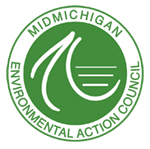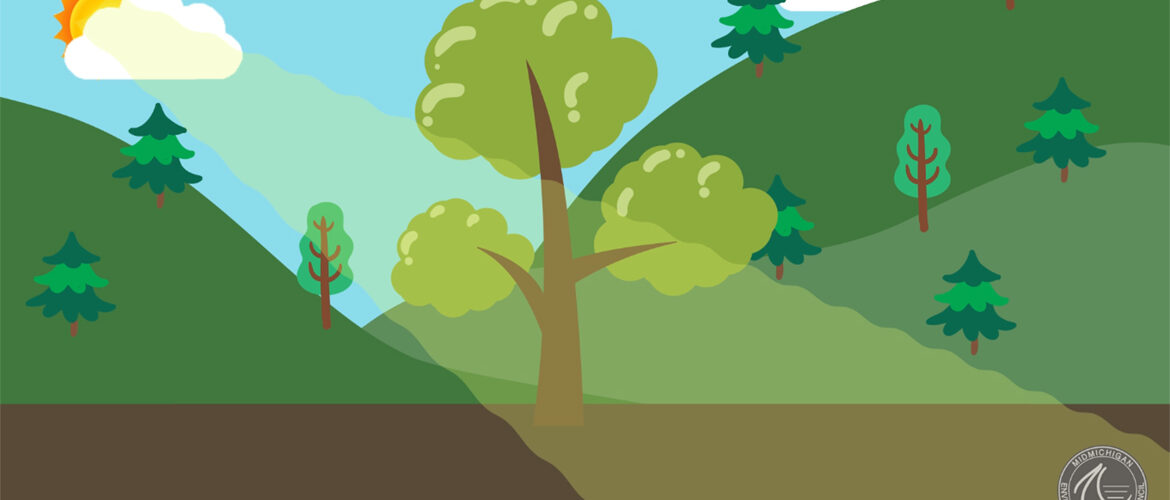Climate means “the usual condition of the temperature, humidity, atmospheric pressure, wind, rainfall, and other meteorological elements in an area of the Earth’s surface for a long time. In simple terms climate is the average condition for about thirty years.”
The measures of climate change are seen all around us, in rising sea levels, melting glaciers, regional droughts, and increasingly volatile weather events. Yet, it’s hard to think of a topic that has generated more political division. While debates continue over the cause(s) and what, if anything, to do about preserving threatened ecosystems, climate scientists tell us we are nearing a tipping point.
It’s encouraging that one of the most common questions we are asked is “What can I do?”
Local Action for Ecosystem Conservation
Your Yard Green Infrastructure (YYGI) – a MidMEAC partnership
Reduce lawn size. Lawns are the largest mono-crop on the globe, necessitating the use of harmful chemicals and gas- or electric-powered mowers, leaf-blowers, edgers, etc.
Reduce or eliminate pesticide use, especially neonicotinoids that are linked with the decline of pollinator populations
Increase use of native plants, shrubs and trees (ask the nursery/outlet if neonicotinoids were used on their plants); increase habitat for bees, butterflies and birds
Plant a rain garden to collect rain water from a roof or driveway. Plant with native grasses and flowering perennials to help filter pollutants while providing food and shelter for butterflies, song birds and other wildlife. Rain Garden resources
Use permeable pavers for paths and drives
“The best time to plant a tree is 20 years ago; the second best time to plant a tree is now.” Plant a tree; plant lots of trees and shrubs as habitat and for carbon sequestration
More Climate Action Steps
Energy Waste Reduction; Resource: Board of Water & Light Hometown Energy Savers
Install Solar / buy a community solar panel Resource: micommunitysolar.org
Buy local, especially food; reduce your carbon footprint through community supported agriculture
Use public transportation, non-motorized transportation; consider investing in electric or hybrid vehicles
Walk or bike more
Recycle; curbside, regional recycling facilities or events
Properly dispose of household hazardous waste (HHW) and medicines; Resource: Ingham County Health Department 5303 S. Cedar St., Lansing; HHW collections Tuesdays & Thursdays from May through September, 2p-6p
Use less; eat what you buy, buy what you eat
Eat meatless once a week
No plastic forks or straws; avoid throwaway bags, plates and cups.
Pick up after your pets (prevent E.coli from entering surface waters)
Report dumping and polluting

